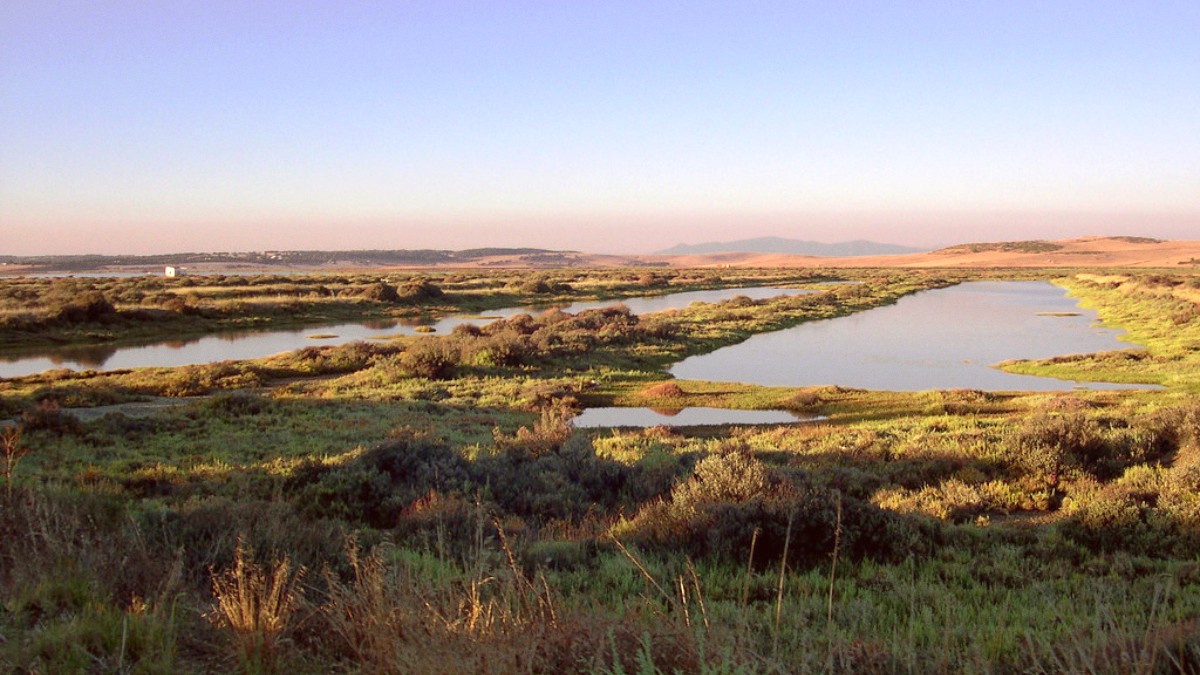
Andalucia, Spain
Climate patterns throughout the year feature distinct conditions. Spring (March-May) brings mild temperatures (15-25°C) and low to moderate precipitation. Summer (June-August) means hot, dry weather (25-35°C) with sea breezes. Autumn (September-November) sees temperatures mild to warm (18-28°C) with moderate rainfall.
Winter (December-February) remains mild (10-18°C) with moderate precipitation. Special weather considerations include the strong, dry Levante wind in summer, which can make beach days uncomfortable, and occasional heatwaves exceeding 35°C. Rainfall concentrates from October to March.
Beach activities: June to September offer the best conditions for enjoying Cadiz's beaches.
Sightseeing and cultural exploration: April-May and September-October (shoulder seasons) yield comfortable temperatures and fewer crowds, perfect for walking tours and visiting attractions. Plan your visit for February or March if you desire the Cadiz Carnival, as dates vary annually.
June-August, & Carnival
Warm weather makes beaches appealing. Cadiz Carnival is a lively festival.
Accommodation and flight prices grow. Crowds are larger, intense heat.
April-May, September-October
Temperatures are pleasant for walking. Fewer crowds, reasonable prices. Sea warm enough for swimming.
Occasional rain showers occur. Some beach facilities might close later in autumn.
November-March (excl. Carnival)
Prices are at their lowest. Few tourists, authentic local experience. Comfortable temperatures for city exploration.
Cooler weather not ideal for beach. Daylight hours shorter, some tourist businesses reduce hours.
Cadiz features a Mediterranean climate with mild, wet winters and warm, dry summers. Temperatures range from 10-18°C in winter to 25-35°C in summer. Rainfall concentrates from October to March.
The Levante wind, a strong, dry easterly, occurs in summer, making beach days less comfortable and ferry crossings choppier. The Poniente wind, a westerly, brings cooler, more humid air, offering relief during warmer periods.
June to September offer the finest conditions for coastal leisure.
April-May and September-October yield comfortable temperatures and fewer crowds.
For this unique festival, plan your visit for February or March (dates vary).
Tours to Jerez and the vineyards are enjoyable year-round, spring and autumn most pleasant.
Summer temperatures occasionally exceed 35°C. Stay hydrated and seek shade.
Spain is part of the Schengen Area, which simplifies travel for many nationalities.
Citizens from the EU/EEA/Switzerland need only a valid ID. Many other nationalities (USA, Canada, Australia, UK, Japan, South Korea) travel visa-free for up to 90 days for tourism or business.
Citizens of other countries typically require a Schengen visa. Apply through the Spanish embassy or consulate in your country of residence.
Cadiz offers options for various travel styles, from budget-friendly adventures to luxurious experiences.
Cadiz is generally a safe city, but awareness and preparation are wise in any travel situation.
Ensure routine vaccinations (MMR, DTP, Polio) are current. Hepatitis A and B are often suggested for travelers to Spain. Consult a travel health clinic or your doctor several weeks before your trip.
Use high SPF sunscreen, wear hats and sunglasses, and seek shade during the hottest parts of the day. Stay hydrated by drinking plenty of water.
Tap water in Cadiz is generally safe to drink. Practice good hand hygiene. Eat at reputable establishments to lessen the risk of traveler's diarrhea.
Carry a compact First Aid Kit for minor injuries (cuts, scrapes, blisters).
Include basic pain relievers, antiseptic wipes, adhesive bandages, blister plasters, and anti-diarrhea medication.
Jellyfish can appear in coastal waters, especially in summer. Look for warning flags on beaches and adhere to any advice from lifeguards to avoid stings.
Always prioritize personal safety and health preparedness.
EU/EEA/Swiss citizens present your EHIC for access to public healthcare services at the same cost as a Spanish resident.
Travel insurance is highly recommended as public healthcare is not free for non-residents. Ensure your insurance covers medical emergencies and potential repatriation.
Call 112 for all emergencies (ambulance, police, fire). This number is free and operates 24/7 throughout Spain. Hospitals in Cadiz include Hospital Universitario Puerta del Mar (Public) and Hospital San Rafael (Private).
Cadiz is generally a very safe city with low crime rates. Petty crime, mainly pickpocketing and bag snatching, occurs most often in crowded tourist areas or during festivals like Carnival.
Cadiz, like any coastal region, has a few seasonal hazards, though generally minor.
Summer can bring periods of very high temperatures. Stay hydrated, seek shade, and plan outdoor activities for early mornings or evenings.
Heavy rainfall, specifically in autumn and winter, can sometimes lead to localized flash flooding in low-lying areas. Stay updated on weather forecasts.
Strong currents or waves can occur along the coast. Pay attention to beach flags and local warnings; do not swim if red flags are displayed.